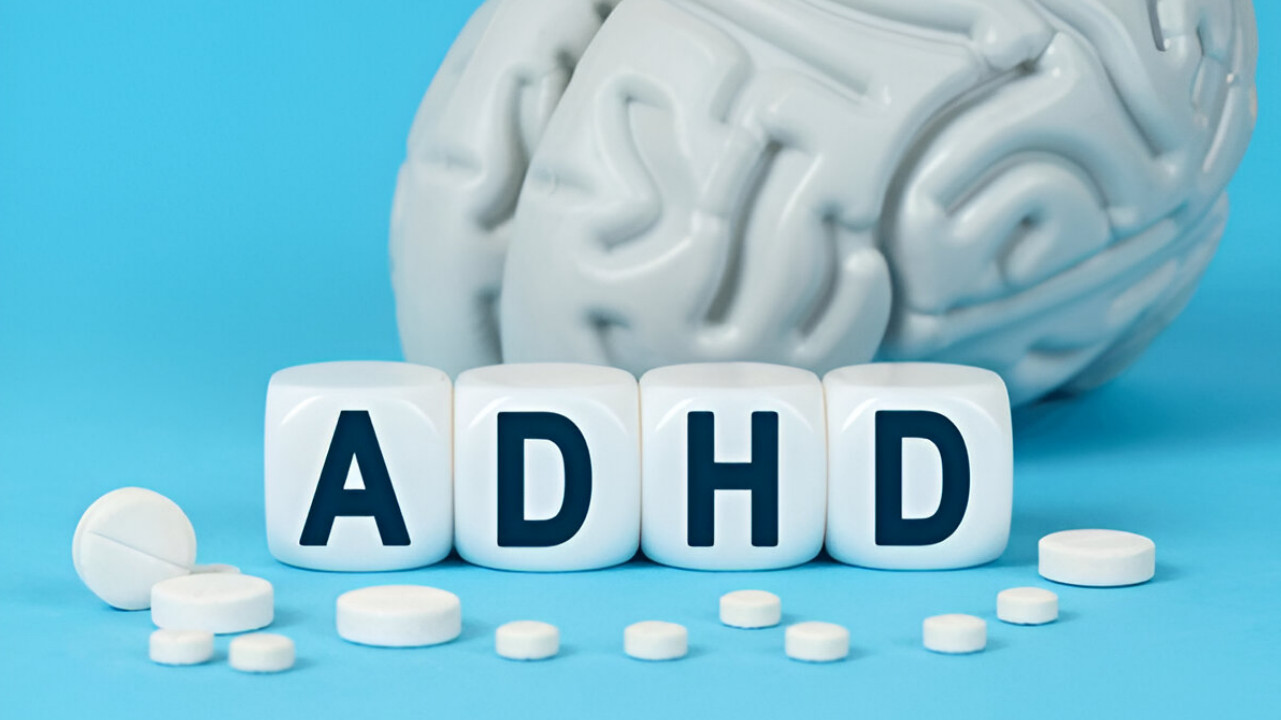Ever feel like the clock is a treadmill you can't step off? For many of us with ADHD, boredom isn't just "nothing to do" it's a restless surge that can turn a quiet moment into an emergency.
Below you'll get the science, the warning signs, and a toolbox of realworld tricks so the next time boredom strikes you'll be ready, not wrecked.
What Is ADHD Boredom?
ADHD Boredom vs. Ordinary Boredom
When most people say they're bored, they usually mean they're waiting for something more interesting. ADHD boredom feels more like a lowlevel panic. The brain craves stimulation so intensely that the lack of it triggers anxiety, irritability, and a compulsive need to act.
Realworld snapshot
Lisa, a college student, described it as "a state of emergency until I find a way to get dopamine flowing." She could sit in a lecture for minutes before the urge to doodle, check her phone, or even get up and walk around became overwhelming.
ADHD Boredom Symptoms
Typical signs include:
- Fidgeting or restlessness that feels impossible to control.
- Mindwandering that spirals into daydreams.
- Quick irritability or "snappy" reactions to minor frustrations.
- Sudden cravings for highstimulus activities (bingewatching, screen scrolling, impulsive snacking).
- Feelings of emptiness or "brain itch" that only activity can scratch.
Quick checklist
| Signal | What it Might Mean |
|---|---|
| Fidgeting without purpose | Understimulation |
| Urgent need to change tasks | Low dopamine drive |
| Sudden irritability | Rising boredominduced stress |
| Compulsive scrolling | Seeking instant dopamine hit |
Why Boredom Hits
Dopamine Deficit & Reward Pathway
Research shows that ADHD brains often produce less dopamine, the chemical that signals reward and motivation. When dopamine levels dip, the brain interprets ordinary moments as "boring" and demands more stimulation to reach a comfortable baseline.
Study insight
According to a 2022 review on NCBI, dopamine dysregulation is linked to higher boredom proneness and impulsivity in adults with ADHD.
Understimulation vs. Boredom
Understimulation isn't just a lack of activity; it's a mismatch between the brain's need for novelty and the environment's monotony. This mismatch triggers the "boredom alarm," which can feel like an internal fire alarm, urging you to act.
Infographic idea (for later)
Imagine a cycle: low dopamine need for stimulation boredom frantic search for novelty brief dopamine hit back to low dopamine.
Environmental Triggers
Long meetings, repetitive chores, or silent rooms can be especially triggering. Even wellmeaning "quiet time" can feel like a punishment when your brain is wired for constant input.
Expert tip
Dr. Ifeanyi Olele, DO, notes that "people with ADHD often have a higher stimulation threshold, so what feels dull to most can be unbearable for them."
Risks of Unmanaged Boredom
Mood Cascade
If left unchecked, boredom can spiral into anxiety, low mood, or even depression. The emotional rollercoaster often starts with irritability, then slides into a feeling of helplessness.
Statistics
CHADD reports that over 40% of adults with ADHD experience depressive episodes that are directly linked to chronic boredom.
Impulsive Behaviors
When the brain is desperate for stimulation, it may reach for quick fixes: excessive snacking, compulsive gaming, or risky activities like impulsive shopping.
Case study
Sam, 28, recounted how a boring work meeting led him to place a $200 online gamble in minutes. The thrill temporarily lifted his boredom, but the aftermath left him feeling guilty and financially strained.
Social & Professional Impact
Constant restlessness can strain relationships. Friends may see you as "always on the go" or "hard to sit with," while coworkers might label you as "distracted." Productivity suffers when you're constantly switching tasks to chase novelty.
Bottom line
Unmanaged ADHD boredom can erode confidence, damage connections, and derail career progress.
Practical Coping Strategies
Instant Relief Tactics
When boredom spikes, try these quick actions (all under two minutes):
- Play a favorite upbeat song or a short whitenoise track.
- Grab a fidget tool a spinner, a rubber band, or a stress ball.
- Do a "bodydouble" task: call a friend and work sidebyside on a simple activity.
- Stand up, stretch, or do a quick 30second jumpingjack burst.
BoredomRescue Kit (stepbystep)
- Sound cue: Put on a 30second rhythmic beat.
- Move: Roll your shoulders, wiggle your fingers.
- Focus: Write down the next three things you need to do.
- Reward: Give yourself a tiny treatlike a piece of dark chocolate.
Design Stimulating Environments
Turn your workspace or study area into a "microadventure." Small changes can make a huge difference in how often boredom strikes.
Example rotation table
| Time Block | Stimulus Cue | Action |
|---|---|---|
| Morning (910am) | Colorful sticky notes | Write top three tasks on bright paper. |
| Midday (121pm) | Music switch | Swap to instrumental playlist. |
| Afternoon (34pm) | Movement break | 5minute walk or desk stretch. |
| Evening (78pm) | Lowlight ambiance | Use a lamp with warm hue for reading. |
Task Chunking & Artificial Urgency
Large projects feel like endless voids. Break them into bitesize pieces and add a selfimposed deadline to each chunk.
Minigame template
"Fold the laundry before the kettle whistles." The ticking kettle becomes a timer, turning a mundane chore into a quick race.
Mindfulness & CBT Tools
Even a few seconds of focused breathing can reset the boredom alarm. Pair mindfulness with cognitivebehavioral prompts to reframe thoughts.
Journaling prompts
- What exact sensation does the boredom feel like right now?
- Which activity would give me a safe dopamine boost?
- How can I turn the current task into a minichallenge?
Lifestyle Pillars
Good sleep, regular exercise, and a balanced diet keep dopamine production steady. Certain foodslike bananas, almonds, and oily fishare natural dopamine boosters.
Quick diet tip
Swap a sugary snack for a handful of pumpkin seeds; the magnesium and zinc support neurotransmitter synthesis.
When to Seek Help
RedFlag Symptoms
If boredom is accompanied by any of these, it's time to reach out to a professional:
- Persistent feelings of hopelessness or suicidal thoughts.
- Extreme impulsivity that leads to financial, legal, or relational harm.
- Sudden, severe anxiety that interferes with daily functioning.
Conversation starter script
"I've noticed that my boredom often turns into intense irritability and impulsive decisions. Can we talk about whether medication or therapy might help manage these episodes?"
Medical Options
Stimulant medications (like methylphenidate) can raise dopamine levels and reduce boredom proneness. Nonstimulants such as atomoxetine work more gradually but may suit those sensitive to stimulants.
Current research
A 2020 clinical trial published in Sage Journals found that participants on extendedrelease methylphenidate reported a 30% drop in boredomrelated impulsivity.
Therapeutic Avenues
CBT tailored for ADHD helps rewire thought patterns around boredom. Coaching focuses on practical strategieslike scheduling "stimulus breaks." Occupational therapy can address sensory needs that often underlie chronic restlessness.
Referral list
- CHADD (Children and Adults with ADHD) national support network.
- Local ADHD specialist clinics many now offer telehealth options.
- ADHD coaching platforms such as ADD Coaching Academy.
Takeaway Summary
ADHD boredom isn't just "nothing to do." It's a neurobiological signal that your brain's dopamine levels are low and it's craving stimulation. Recognizing the symptoms, understanding the underlying science, and applying a mix of instant relief tactics, environmental tweaks, and lifestyle habits can dramatically lower the frequency and intensity of those boredom spikes.
Remember, you don't have to battle it alone. If the boredom feels overwhelming or triggers risky behavior, seeking professional help is a sign of strength, not weakness. And if you've found a coping hack that works for you, share it in the commentsour community grows stronger with every tip.
What's your goto move when boredom knocks? Let's keep the conversation going and help each other stay engaged, motivated, andmost importantlykind to ourselves.
FAQs
What exactly is ADHD boredom and how does it differ from regular boredom?
ADHD boredom is a low‑level panic caused by a dopamine shortfall, making ordinary moments feel intolerably dull and prompting an urgent need for stimulation.
Why does dopamine play such a central role in ADHD boredom?
People with ADHD typically have lower baseline dopamine, so the brain constantly seeks the chemical “reward” to stay motivated; when it’s missing, boredom spikes.
What quick actions can I take the next time I feel an ADHD boredom surge?
Try a two‑minute “Boredom‑Rescue Kit”: play a short upbeat beat, move a few joints, jot down the next three tasks, and reward yourself with a tiny treat.
Can lifestyle changes really lower the frequency of boredom episodes?
Yes. Consistent sleep, regular exercise, and dopamine‑boosting foods (like bananas, almonds, and oily fish) help keep dopamine levels steadier, reducing boredom triggers.
When should I consider professional help for ADHD boredom?
If boredom leads to persistent hopelessness, severe impulsivity, or anxiety that disrupts daily life, it’s time to talk to a clinician about medication, CBT, or coaching.
Disclaimer: This article is for informational purposes only and does not constitute medical advice. Always consult with a healthcare professional before starting any new treatment regimen.
Related Coverage
If you think you may have ADHD, there are steps to take before meeting with your doctor, like tracking symptoms and reviewing your history. Openly discuss your concerns and learn about diagnostic processes and possible ADHD treatments....
Protein snacks like yogurt, nut butter, cheese and eggs provide kids with sustained energy and nutrition for growth and development. Discover the best snacks....
Coping with retinol irritation like burning, redness, dryness? Learn how long symptoms last, when to worry, and get aftercare tips to heal skin post inflammation....
Vyvanse requires a schedule II prescription from a fully licensed psychiatrist. Learn about regulations for obtaining Vyvanse from online doctors vs. seeing one in-person....
ADHD screening quizzes help women identify symptoms like inattention, disorganization and hyperactivity. If you score high, discuss ADHD testing with your doctor....
The ongoing Adderall shortage has severely impacted ADHD patients in the Kansas City region. Here are medical and lifestyle methods for coping until supplies rebound....
Wondering about ADHD testing costs? Get the scoop on prices, insurance tips, and affordable options in this friendly, easy-to-read guide!...
ADHD and perfectionism often go hand in hand. Learn how perfectionism impacts those with ADHD and find practical coping strategies....
From emotional dysregulation to executive function problems, ADHD bad days happen. But self-care, adjusting expectations, knowing triggers, and support help cope....
Learn about the connections between extreme list making tendencies and ADHD. Uncover reasons for this obsessive habit and explore techniques to get compulsive behaviors under control....







